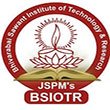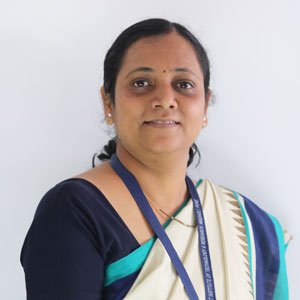JSPM's Bhivarabai Sawant Institute of Technology & Research, Wagholi, Pune
Gate No. 720/2, Nagar Road, Wagholi, Pune, Maharashtra 412207
Approved By AICTE, New Delhi, Govt.Of Maharashtra & Affiliated To Savitribai Phule Pune University
Institute is Accredited by National Assessment & Accreditation Council(NAAC), Bengaluru with A+ Grade
and Electronics & Telecommunication, Electrical Engineering and Information Technology(IT) are accredited by National Board of Accreditation(NBA), New Delhi
Electrical Engineering
The Department of Electrical Engineering was established in the year 2009 with a sanctioned intake of 60 and is growing rapidly. The department presently conducts a four year Bachelor of Engineering degree course in Electrical Engineering which is affiliated to Savitribai Phule Pune University, Pune (Formerly University of Pune). The Electrical Department is accredited by NBA and NAAC. The department has well qualified faculty with vast experience in teaching and industries, assisted by skilled supporting staff. The Electrical Department is equipped with fourteen different Laboratories. We all, as a team is committed to develop quality engineers with the right attitude having a blend of technical and managerial skills and high standards of professionalism and ethics. A departmental organization “Electrical Engineering Students Association” (EESA) which provides a platform for students to exhibit their talent in various Curricular and Extracurricular activities. The students graduated from our department have been securing good placements in various reputed industries.
Vision
“ Human resourse development to meet growing industrial and social challeges. ”
Mission
To impart quality education and nurture aspirants to face the growing challenges and satisfy the stakeholders
Strength Of Department
Department has well equipped with laboratories.
The department has good infrastructural facilities and is equipped with full fledged laboratories
The department regularly organizes seminars, guest lectures, Industrial visit and various co-curricular activities.
The Electrical department has established student’s Association EESA (Electrical Engineering Students Association) which organizes the Technical events and Social Activities.
Students are placed in reputed companies like-General Electricals, Flex, Huddle, Renata,Aviro Energy India Pvt Ltd.
Program Educational Objectives (PEO)
- PEO1: Graduate shall have abilities to pusue professional carrier with social responsibility
- PEO2: Graduate shall have an ability to work in a team to address diversified challenges providing sustainable solutions
Program Specific Objectives (PSO)
- Analyze, design and test modern electronics systems, control systems, electrical machines and drives for the applications in multidisciplinary domain.
- Specify, architect, design and analyze power system, renewable energy systems that efficiently generate, transmit and distribute electrical power in context of present technological development.
Program Outcomes (PO)
- 1. Engineering Knowledge: Apply the knowledge of mathematics, science, engineering fundamentals, and an engineering specialization to the solution of complex engineering problems.
- 2. Problem Analysis: Identify, formulate, review research literature, and analyze complex engineering problems reaching substantiated conclusions using first principles of mathematics, natural sciences, and engineering sciences.
- 3. Design/development of solutions: Design solutions for complex engineering problems and design system components or processes that meet the specified needs with appropriate consideration for the public health and safety, and the cultural, societal, and environmental considerations.
- 4. Conduct investigations of complex problems: Use research-based knowledge and research methods including design of experiments, analysis and interpretation of data, and synthesis of the information to provide valid conclusions.
- 5. Modern tool usage: Create, select, and apply appropriate techniques, resources, and modern engineering and IT tools including prediction and modeling to complex engineering activities with an understanding of the limitations.
- 6. The engineer and society: Apply reasoning informed by the contextual knowledge to assess societal, health, safety, legal and cultural issues and the consequent responsibilities relevant to the professional engineering practice.
- 7. Environment and sustainability: Understand the impact of the professional engineering solutions in societal and environmental contexts, and demonstrate the knowledge of, and need for sustainable development.
- 8. Ethics: Apply ethical principles and commit to professional ethics and responsibilities and norms of the engineering practice.
- 9. Individual and team work: Function effectively as an individual, and as a member or leader in diverse teams, and in multidisciplinary settings.
- 10. Communication: Communicate effectively on complex engineering activities with the engineering community and with society at large, such as, being able to comprehend and write effective reports and design documentation, make effective presentations, and give and receive clear instructions.
- 11. Project management and finance: Demonstrate knowledge and understanding of the engineering and management principles and apply these to one’s own work, as a member and leader in a team, to manage projects and in multidisciplinary environments.
- 12. Life-long learning: Recognize the need for, and have the preparation and ability to engage in independent and life-long learning in the broadest context of technological change.
Prof. Dr. Ghuge Nilam Nimraj
Head of Department Ph.D(Image Processing), M.E. (Control Systems)
nnghuge_elec@jspmbsiotr.edu.in
Prof. Mayuri B Gawande
Assistant Professor ME(Electrical Power system)
mbgawande_elec@jspmbsiotr.edu.in
Prof. Miss. Pallavi Piraji Kamble
Assistant Professor B. E. ELECTRICAL, M.E. POWER SYSTEM
kamblepallavi4194@gmail.com
Vision
- Human recourse development to meet growing industrial and social challenges.
Mission
- To impart quality education and nurture aspirants to face the growing challenges and satisfy the stakeholders
Objective
- The objective of EESA is to establish and encourage a healthy academic, social, and cultural atmosphere among the students of the department. EESA is established to arrange cultural, literacy, sports, and any other events and focuses on the active participation of students in all such events to develop qualities like,
- Leadership
- Self-confidence
- Creativity
- Teamwork
- Presentation skills and communication
Electrical Engineering Student Association
| Sr.No. | Name | Designation | |
|---|---|---|---|
| 1 | Jawale Prashant | Vice President | |
| 2 | Ayesha Pathan | Vice President | |
| 3 | Bhosale Rohit | Cultural Secretary | |
| 4 | Kale Kalyani | Cultural Secretary | |
| 5 | Panchal Omkar | Technical Member | |
| 6 | Pachpute Anjali | Technical Member | |
| 7 | Kayate Kundansing | Sports Coordinator | |
| 8 | Borole Meghana | Sports Coordinator | |
| 9 | Chavan Adesh | Treasurer |

.png)










Electrical Measurement And Instrumentation Lab
In Electrical Measurements and Instrumentation Laboratory various practical based on Measuring Instruments and Transducers are con ...
Read MoreHigh Voltage Engineering Lab
In this lab students are explored all aspects of High Voltage Engineering practically with all possibilities of understanding var ...
Read MoreMaterial Science Lab
Material science lab where student study and investigate relationship between the properties of the materials and it is very impor ...
Read MoreMicroprocessor Lab And Microcontroller Lab
Microprocessor Lab And Microcontroller Lab is the lab where students basically study, develop and debug program in assembly langua ...
Read More